Studying a foreign language in primary school helps children realize that for a real acquaintance with the world around them, other countries, peoples, their customs and traditions, it is necessary to speak well and understand speech in a foreign language, read and write.
At the initial stage, the foundations of communicative competence are laid, which make it possible to carry out foreign language communication and interaction of children at an elementary level.
As a rule, younger students start learning English with great pleasure, because this subject is completely new for children and therefore arouses their keen interest. The task of the teacher is to preserve this interest. The real needs of younger students in communication and knowledge should be taken into account as much as possible.
Children have a play motivation, the use of which, as well as the use of all memorization mechanisms: visual, auditory, motor, allows you to create excellent conditions for mastering the language.
The main goals of learning a foreign language:
Development of the ability to communicate in a foreign language, taking into account the speech capabilities and needs of children.
Development of the child's personality, motivation for learning a foreign language.
Providing communicative and psychological adaptation of the child to the new linguistic world.
Mastering elementary linguistic concepts necessary for mastering oral and written speech in a foreign language.
Introducing children to a new social experience, acquaintance with the world of foreign peers, fostering a friendly attitude towards representatives of other countries.
Formation of speech, cognitive, general educational skills.
The problems of the formation of a stable motivation for learning a foreign language among modern schoolchildren require the teacher to use various methods that increase interest in the subject, develop the creative activity of schoolchildren.
When choosing a methodology for teaching English in primary school, remember that the learning process should be interesting and creative.
In English lessons in elementary school, a teacher with a focus on positive outcomes must follow a set of rules. First of all, pay attention to the fact that each child actively participates in the communication process and feels important. Otherwise, the student will lose interest in the subject.
To create a favorable environment for communication in the lesson, you should not criticize children. They are already afraid to make a mistake, which is why they prefer to remain silent during class. For this reason, many techniques urge teachers at the initial stage of language learning not to correct the child's mistakes at all. As a last resort, it should be done in a very mild manner.
It should be remembered that interest in assignments among younger students disappears after 10-15 minutes, therefore, a good method of teaching English in primary school should include frequent changes in activities in the lesson.
The tasks that the teacher gives children should be focused on different types of perception: sound, visual support, practical actions and writing. This combination is of particular importance when studying new material.
It is very important when conducting an English lesson in elementary school to constantly use classroom phrases in speech, often repeat various structures. Pupils listen to the teacher and repeat after him. This leads to improved memorization and recognition of familiar words and phrases. In real life, we perceive information in different ways: we highlight the moments of interest to us, catch the general meaning of what was said, try to remember it “literally”. The lesson should practice all types of information perception: listening for specific information, listening for detail, listening for gist.
For example, we perform the following task:
1. Listen to the text about four children and their gifts. Tell me what gift Masha received.
While completing this task, the students will not pay attention to information about other children, but will look for the word "Masha" and the name of her gift. (specific information).
2. Listen to the text and say what gifts each child received (listening for detail).
3. Listen to the text and say what it is about. (listening for gist).
Listening allows children to master the sound side of the language, lexical and grammatical means of communication. But, auditory perception and auditory memory are less developed in students than visual perception and memory. The throughput of an auditory analyzer is 16 times less than that of a visual one. In addition, the problem of teaching listening is aggravated by the fact that different children have different levels of auditory and visual perception. Listening requires intense attention, which quickly causes fatigue and disruption to students' attention.
When teaching the reading technique, the technology "from sound to letter" is often used, which provides for the mastery of transcription by children as a visual support for mastering the alphabet, mastering sound-letter correspondences. The use of transcription helps children learn the rules for reading vowels, letter combinations, that is, it teaches how to read.
Knowing how to read from transcription, children can read any word.
Technology "see-speak" - we show a picture in which an object is depicted and a word corresponding to the object is written and we name the object shown in the picture. This helps children remember the meaning of the word, graphic symbols of the word, find and read this word in the text.
According to the program, at the end of grade 4, children who master reading in English should be able to:
Read aloud expressively with correct stress and intonation;
Understand the main content of simple authentic texts;
To fully understand the content of educational and uncomplicated authentic texts (instructions, recipes, menus, daily routine, adapted popular science texts);
Find information of interest in the text (elements of search reading).
Learning to speak is one of the most important aspects in learning a foreign language.
Children love to pronounce words and phrases in English. At the initial stage of learning English, children learn to pronounce words and phrases heard in songs, poems, stories and through short dialogues in pairs. The main goal is to teach children to communicate, exchange information. The teacher should involve children in communication activities. Communication activity is based on the principle of "information - gap", when you need to learn something new from other people or communicate any information to other people. The principle of "Information - gap" can be used in the study of various topics and structures. This principle helps to develop speaking skills, even with a small vocabulary. Speaking skills are divided into two parts: "spoken interaction" - the ability to ask questions and answer them, "spoken production" - the ability to tell or retell a text, poem, etc.
It is important to develop children's competence in these two areas in order to lay the foundation for further successful language learning.
We begin teaching writing and reading after the children have mastered "listening" and "speaking".
Writing and writing in primary school in foreign language education is the means and purpose of learning. Writing and reading in primary school are intertwined.
The technology of teaching writing includes familiarization with the writing of letters, training in writing letters, words, sentences and mastering the spelling of words.
When teaching spelling, the technique of writing off words is used, which forms spelling memory. Spelling literacy is an important part of I.Ya. -15% of the study time is devoted to writing, according to the Foreign Languages Program. An indicator of the formation of writing skills is the quality of the content and the quality of the language side.
At this stage, several levels can be distinguished:
"Pre - writing activities" - any type of activity that develops motor skills, coordination and visual memory (drawing, handicraft), which will help children get ready for writing.
"Letter - Formation level" - children will learn that each letter has a shape, name and sound.
"Word - level" - children learn to memorize words. Popular method: "look, say, cover, write, check".
"Sentence-level" - children learn to place words in a sentence in the correct order. Use capital letters and punctuation.
"Text-level" - writing simple sentences according to the sample: greeting cards, messages to friends and family, etc.
The strategy of mastering speech material, from receptive to productive types of speech activity, extends to mastering the grammatical side of speech.
The process of teaching the grammatical side of speech is included in the general context of the lesson when various situations are used. Mastering a grammatical phenomenon occurs on the basis of mastering a speech pattern.
Automation of the use of grammatical phenomena is carried out in the course of performing the following exercises:
-imitative, when students read and repeat the finished grammatical form after the speaker.
- substitutional, when students substitute lexical units in a speech pattern.
-transformational, when learners transform the grammatical form.
- reproductive, when students independently reproduce the grammatical form.
Training in all types of activities should take place in a comfortable and welcoming environment. The use of various game technologies in the lesson can contribute to the successful teaching of a foreign language to children.

 Получите свидетельство
Получите свидетельство Вход
Вход




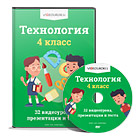
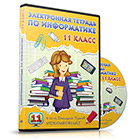

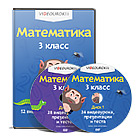
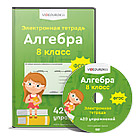
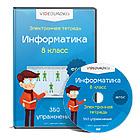
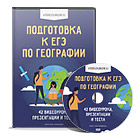
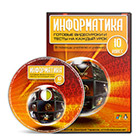
 Обучение английскому в начальной школе (17.22 KB)
Обучение английскому в начальной школе (17.22 KB)
 0
0 16
16 0
0 Нравится
0
Нравится
0


